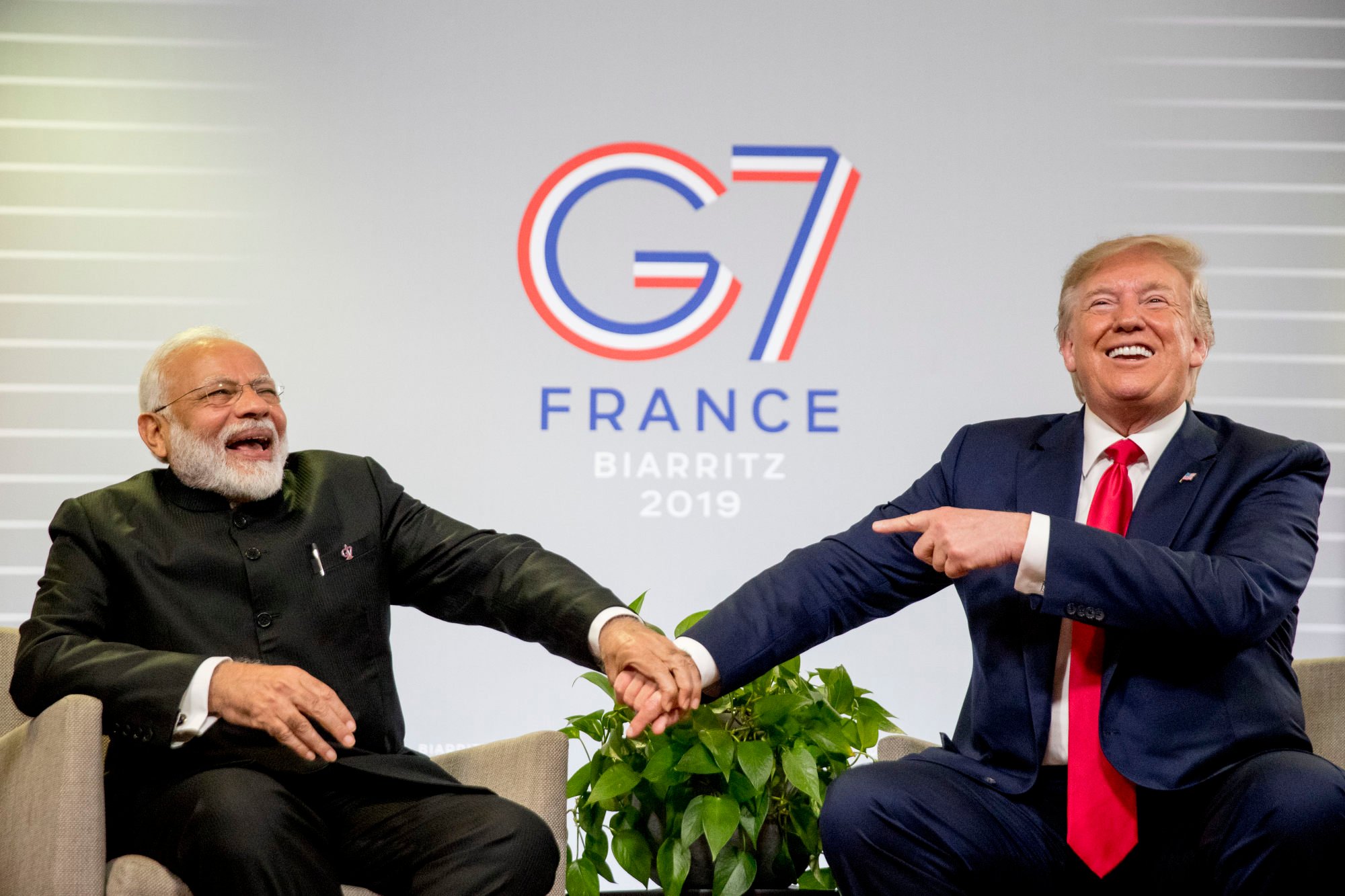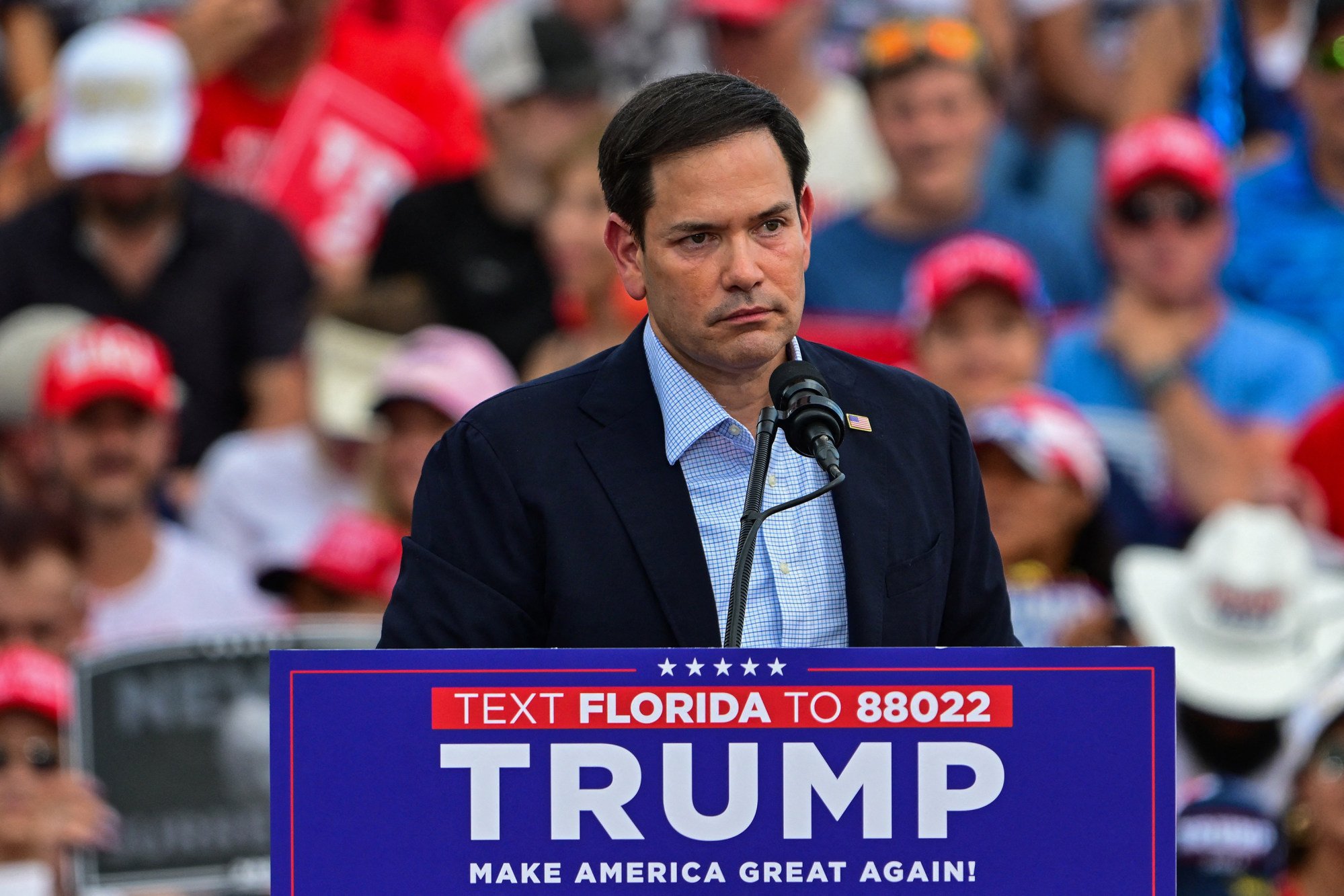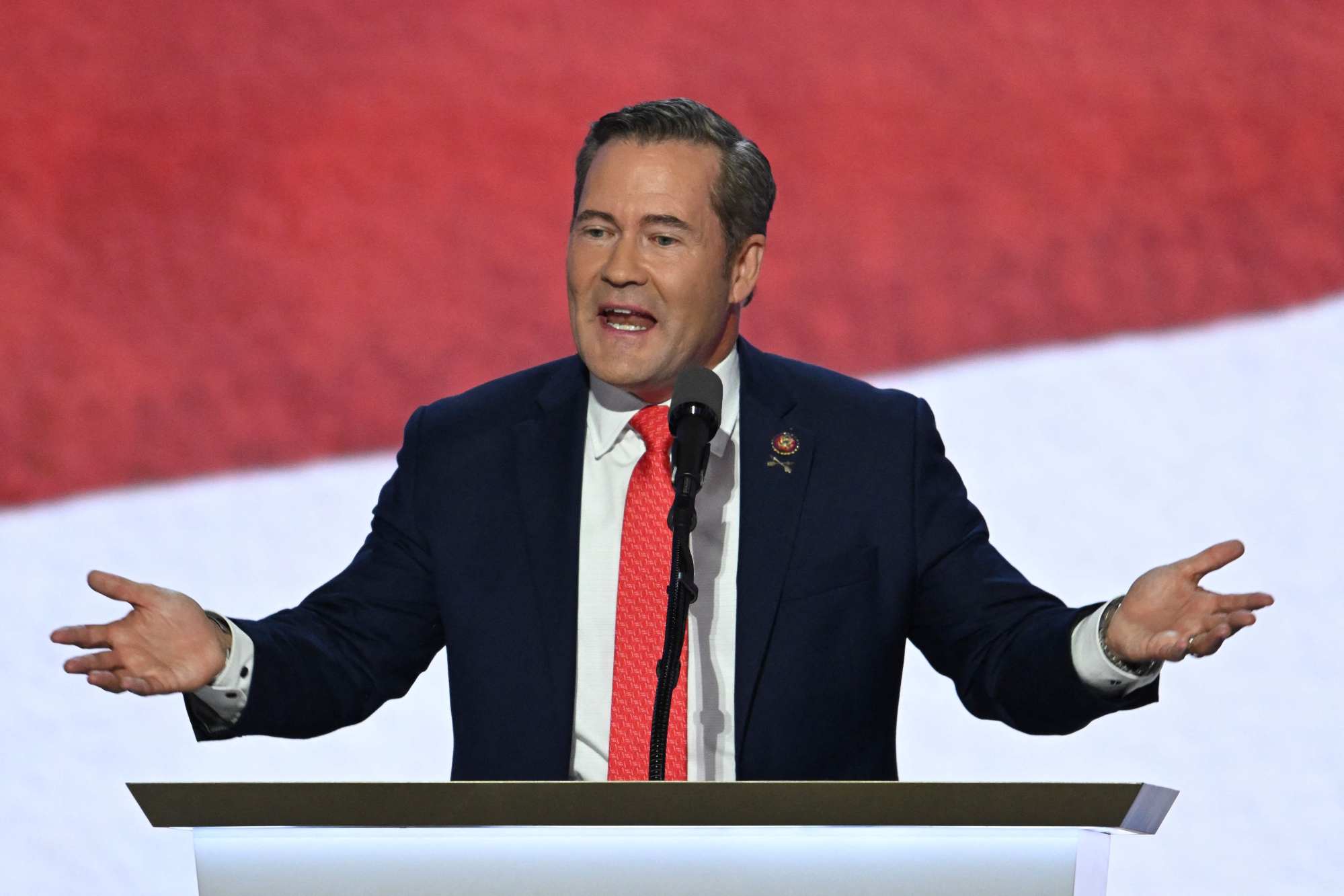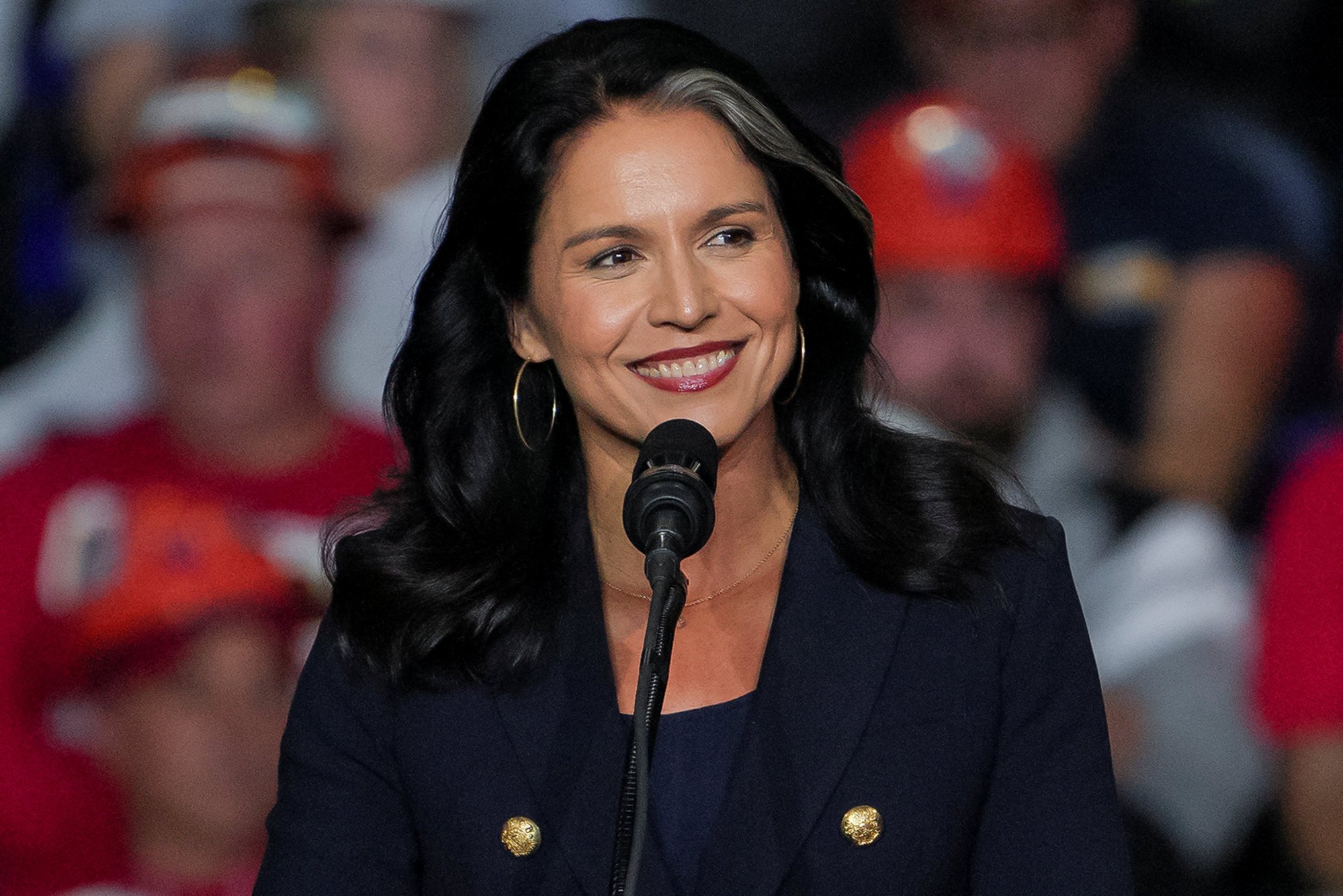Days after Donald Trump’s electoral win sent shock waves of concern through Europe and Asia, India’s top diplomat seemed to mock the response, expressing confidence in being able to navigate the US president-elect’s approach to foreign relations.
Indian Foreign Minister Subrahmanyam Jaishankar said that many countries might be nervous, but that “India was not one of them”.
Prime Minister Narendra Modi’s congratulations, Jaishankar said, were “among the first three calls, I think, that President Trump took”.
Do you have questions about the biggest topics and trends from around the world? Get the answers with SCMP Knowledge, our new platform of curated content with explainers, FAQs, analyses and infographics brought to you by our award-winning team.

Several of the nominees Trump announced last week – Senator Marco Rubio for US secretary of state, Representative Mike Waltz for national security adviser, and former representative Tulsi Gabbard for director of national intelligence – have staunchly supported stronger relations with India as part of the US strategy to counter China in the Indo-Pacific.
While some analysts argued that Trump’s “America First” policy may impede deeper cooperation in tech and trade with India, others contended that India is likely to have a better chance at striking a favourable deal with Trump than China.
Either way, the new team is likely to shift the US strategic focus, placing less emphasis on human rights and India’s relationship with Russia. Under outgoing President Joe Biden, the US worked to strengthen ties with New Delhi as a counterbalance to China, while pressing Modi on his civil liberties record. The new approach may prioritise other concerns, altering that balance.
“It turns out that the overall mix is very favourable to India,” said Sarang Shidore, director of the Global South programme at the Quincy Institute in Washington, citing the more pro-India and anti-China stance voiced by several of Trump’s cabinet nominees.
In July, Rubio introduced the US-India Defence Cooperation Act, legislation intended to elevate India’s strategic status and grant it access to advanced US military technology, on par with close allies such as Japan, Israel, South Korea and Nato partners.
“Communist China continues to aggressively expand its domain in the Indo-Pacific region, all while it seeks to impede the sovereignty and autonomy of our regional partners,” Rubio said in a statement announcing the bill.

In September, China and India announced a consensus on disengaging their troops in their long-standing Himalayan border dispute, which led to deadly clashes in 2021. The deal helped clear the way for the first formal meeting between Chinese president Xi Jinping and Modi in four years.
Rubio voiced support for India in 2014, shortly after Modi first became prime minister and visited Washington. Rubio criticised then-President Barack Obama for “neglecting” India following efforts by the George W. Bush administration to strengthen ties with New Delhi.
“The world’s largest democracy has the potential to become a key US partner in the decades ahead,” the senator said then.
Waltz, Trump’s pick for his national security adviser, chairs the House Congressional Caucus on India and Indian-Americans and has long advocated strengthening US defence and security ties with China’s neighbour. He travelled to New Delhi in August 2023 to participate in the country’s Independence Day celebrations with Modi.
While there he hailed Modi’s “Make in India” initiative, which aims to position the nation as a promising manufacturing alternative to China, and pledged that the US would work alongside New Delhi.
Liu Zongyi, a senior fellow with the Shanghai Institutes for International Studies’ South Asia and China Centre, said that “based on previous positions made by these nominees, it’s not good for China’s ties with the US and with India”.
He added that despite the border thaw, “India will continue to see China as a top strategic rival and is unlikely to ease its efforts to compete with China”.

Washington’s hard stance against Beijing, Robinder Sachdev, an Indian foreign relations analyst, contended, “will not only weaken China’s growing influence, but it will also bring advantage to India”.
American companies, he told the Indian news agency ANI, “would now look to move out of China more and more because of the problems they face” as Washington prioritises moving US supply chains away from China. India, Sachdev noted, could be an “attractive destination”.
However, Lin Minwang of Fudan University’s Centre for South Asian Studies argued that questions remain about how much Trump, who has repeatedly voiced doubts about security alliances, would work on ties to India – or even whether his aides could convince him to do so.
Under Trump’s “America First” policy during his first term from 2017 to 2021, the US moved significantly toward isolationism.
“If that is still the faith of Trump now, then it will be a question if the US is going to invest more on its own alliances,” Lin said. “How can we expect Trump to invest more on its partnership with India?”
Despite optimism about the US-India partnership, Lin cautioned that relations might be more fragile than they appear. The Biden administration has raised concerns over India’s human rights record, and India’s national security adviser, Ajit Doval, canceled a US trip in September after a New York court issued a summons related to a civil suit filed by Sikh separatist Gurpatwant Singh Pannun.
While India labels Pannun a terrorist, the US Justice Department indicted an Indian national over a foiled plot to kill him, later adding an Indian intelligence officer to the charges.
Moreover, US-India trade relations during Trump’s first term were rocky under US Trade Representative Robert Lighthizer, who initiated trade investigations and imposed tariffs on Indian imports. He also removed New Delhi from a duty-free programme. Lighthizer is reportedly in line for trade representative again, though nothing has been officially announced.
During his campaign, Trump vowed to punish New Delhi for imposing up to 80 per cent import duties on American-made motorcycles by imposing reciprocal tariffs.
But Shidore said that the pro-India leanings of Trump’s new team could help create “quite generous terms for India” in the overall tough stance the president-elect is likely to take against all trading partners that run surpluses.
In 2023, the trade balance with the US was in India’s favour, with a surplus of more than US$35 billion. Compared to China’s US$279 billion trade surplus with the US in 2023, Shidore argued that New Delhi is in a stronger position to strike a favourable trade deal with Trump than Beijing is.
China remains the “central pillar” behind the US engagement with India, Shidore said, noting that Trump in his first term revived the Quad – a US-led security grouping including India, Australia and Japan – as well as signed defence cooperation agreements with New Delhi.
Trump has also nominated Peter Hegseth as the next US defence secretary. A Fox News commentator, Hegseth recently claimed that China was building an army to defeat the US.
While the US never shares its most cutting-edge technologies, according to Shidore, Trump is likely to focus on intelligence cooperation and approving more arms deals with New Delhi, all with an eye on China.
“A year or two from now, I fully expect the US to actually be tougher on China and see India as a partner in that process,” he said.
Trump’s other key security-related pick is Gabbard. If confirmed, she will oversee the 17 US intelligence agencies. Gabbard, who served four terms as a US representative from Hawaii, also ran a short-lived campaign for the Democratic presidential nomination in 2020. She left the party in 2022.
Under Biden, the US deepened intelligence-sharing efforts with New Delhi, including on the disputed Himalayan border with China, and Gabbard is expected keep up the momentum.

Gabbard, a practising Hindu, has ties to Modi’s Hindu-Nationalist BJP party. In 2014, when Modi visited Washington, she gave her personal Bhagavad Gita to the Indian leader. In 2015, a high-ranking party official attended her wedding, and brought a message and gift from Modi. India’s then-ambassador, Tanranjit Sandhu, also attended the wedding.
Like Trump, Gabbard seems at least open to Russian arguments concerning its war on Ukraine, contending that it could have been avoided had the US and its Western allies acknowledged Moscow’s “legitimate security concerns” regarding Ukraine’s interest in joining Nato.
Trump, long known as an admirer of Russian President Vladimir Putin, called his invasion of Ukraine “genius” and “savvy” when it first occurred in February 2022.
Modi maintains a strong relationship with Putin, and New Delhi has continued to deepen its diplomatic and economic ties with Moscow, despite pressure from Biden to isolate Putin.
In October, the Biden administration sanctioned 19 Indian companies and two individuals, for supporting Russia’s military activities in Ukraine.
“There were differences between the Biden and Modi teams” on Ukraine, Shidore said.
Among all the other strategic shifts Trump’s return may mean for New Delhi, he noted, the open question about Ukraine is “maybe the biggest relief for India, because the Russia relationship, India is not willing to give that up”.
More from South China Morning Post:
- Who are Trump’s picks for top White House jobs and where do they stand on China?
- China hawk Rubio likely to take hard line on Hong Kong but Beijing well prepared: experts
- What does Trump’s pick for Pentagon chief mean for US-China military ties?
- How should Indo-Pacific leaders deal with Trump 2.0? Analysts suggest getting personal
For the latest news from the South China Morning Post download our mobile app. Copyright 2024.





